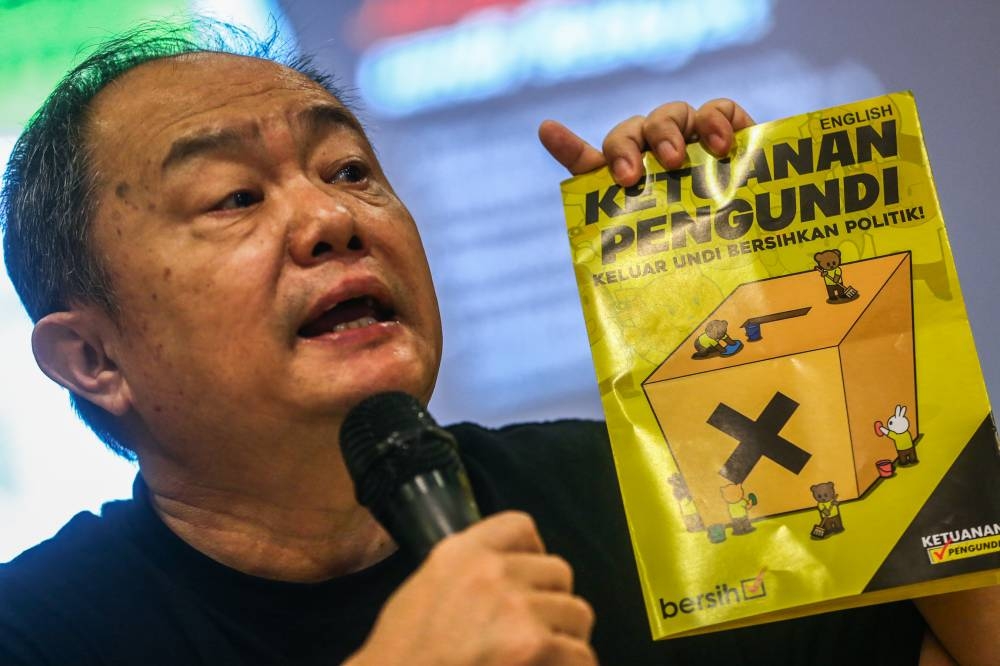KUALA LUMPUR, Dec 17 — Electoral watchdog Bersih said the country was still far from having free and fair elections despite two successive administrations being voted out by Malaysians.
Bersih chairman Thomas Fann said issues such as gerrymandering and malapportionment of constituencies still persisted despite the results of the 2018 and 2022 general elections.
“While it’s true that the ruling coalition was defeated in the last two general elections, I would still not term our elections as free and fair as long as structural biases such as gerrymandering and malapportionment of constituencies exist,” he told Malay Mail.
Fann said that there was still unequal media access for political parties and lack of clear guidelines to prevent abuses of state resources by the government.
“The change in government happened in spite of the structural flaws and weaknesses,” he said.
In the 14th general election, Pakatan Harapan (PH) secured a simple majority in Parliament to form the federal government, causing Barisan Nasional (BN) to lose federal power for the first time in the country’s history.
However, in February 2020, the PH government fell after just 22 months when some of its federal lawmakers pulled their support in the so-called the “Sheraton Move”.
This then allowed Perikatan Nasional (PN) to take over the government unelected with the support of BN at the time.
Despite being the ruling coalition, PN and BN contested against each other as well as PH in the 15th general election, leading to a hung Parliament.

After several days of negotiation, PH chairman Datuk Seri Anwar Ibrahim was appointed as Malaysia’s 10th prime minister, heading a national unity government with BN and Gabungan Parti Sarawak, with Gabungan Rakyat Sabah and Parti Warisan joining later.
To improve the country’s election processes and structures, Fann said the prime minister has to reform how the Election Commission was constituted.
Fann said Anwar should ensure that the appointees are not beholden to the prime minister.
“There has to be a nomination process where the public can name qualified candidates and a Parliamentary Standing or Select Committee must shortlist candidates for the prime minister.
“Secondly, the laws must be updated to empower the Election Commission to act against violation of election laws and ambiguities with regard to delineation parameters should be removed.
“Thirdly, an administrative decision could be taken to allow equitable access the public media platforms for candidate debates and party political broadcasts,” he said.
Explaining the outcome of the last two general elections, Fann said that the EC has improved the overall election process as evidenced by the fewer complaints made by the parties.
“However, access to voting is still far from satisfactory when about one million eligible overseas voters and more than half a million Sabahan and Sarawakians voters working and living in peninsula are unable to vote without flying home at their own cost to vote.
“The EC must utilise either better postal voting methods or allow advance voting for some of these voters,” he said.
“From the level of voters turnout for the last few general elections, it is obvious that Malaysians take a keen interest in our elections, but ways must be found to allow them to vote more easily and to be better informed,” he added.






















